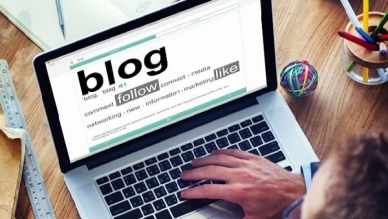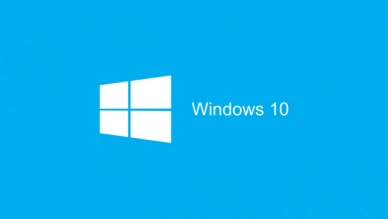AI and Advertising: What Does the Future Hold After the "Dear Sydney" Incident?
Consumers remain wary of AI, with 52% of users in the U.S. feeling more concerned than excited about this technology.
Advertisers love to talk about AI, but they face a major challenge: consumers are skeptical of the technology and don’t want to be bombarded with AI-related messages.
This issue was highlighted at the Olympics, where Google faced backlash over its AI Gemini ad. The "Dear Sydney" ad, featuring a father using AI to help his daughter write a letter to her athlete idol, received widespread criticism, leading Google to pull the ad. In a statement, Google said they were trying to showcase AI's ability to enhance human creativity rather than replace it.

"There seems to be a misunderstanding about our use of AI," said Iain Thomas, co-author of the AI book What Makes Us Human? and founder of Sounds Fun, a company that helps marketers leverage AI. "We shouldn’t be using AI to write poetry or books but rather to handle the heavy lifting so we can expand creativity in various ways."
Google isn’t the only company facing backlash for AI advertising. A Toys "R" Us ad in June, created using OpenAI’s text-to-video tool Sora, received mixed reviews, with some viewers suggesting that the ad implied filmmakers could be replaced by AI. Similarly, a "AI-powered" Under Armour ad in March was accused by some in the creative community of using others' work without proper attribution.
These significant missteps highlight a fundamental issue advertisers face: consumers still don’t trust AI and are unlikely to buy AI-supported products. A study by researchers at Washington State University published in the Journal of Marketing & Hospitality Management earlier this year found that U.S. consumers are less likely to purchase products like TVs, medical devices, or financial services if "artificial intelligence" is mentioned in the product description.
It’s easy to understand the growing unease, with increasing fears about AI's potential to disrupt jobs and strip away our humanity. A Pew study in November showed rising concern over AI, with 52% of Americans more worried than excited about AI, up from 37% two years earlier.
A Yahoo survey published in February with Publicis Media revealed that advertisers are twice as likely to view AI positively compared to the general public.
Companies Are Making Big Investments in AI, Spending Millions on Marketing
Businesses are expected to spend over $40 billion on generative AI this year, and many companies are relying on their marketing departments to introduce these new products to the public.
According to data from MediaRadar, companies spent over $107 million on advertising AI-related products and services in the first half of 2024, up from $5.6 million during the same period last year. So far, 575 companies have advertised AI products in 2024, up from 186 in all of 2023.
Josh Campo, CEO of the advertising firm Razorfish, said, "This is a dilemma because marketers need to differentiate themselves, and they're using AI to do that," adding that this is especially challenging for companies like financial services and healthcare, which handle sensitive personal data.
"You can speak well about AI, but don’t advertise the technology that way. It’s not a strategy; it’s a tool," he said. "We advise focusing on: What are the benefits for human experiences?"
Matt Rebeiro, executive strategy director at creative agency Iris, noted that many businesses are also adopting AI in their advertising, using it as a support tool to show how AI can help their customers drive efficiency. But he added that AI isn’t a unique selling proposition, and marketers need to focus on the benefits and outcomes.
"I don’t care if AI makes sausages as long as they taste good," Rebeiro said. "Similarly, I wouldn’t say my new product was designed with Photoshop, so why would I talk about it being designed with AI? It might be new, but in most cases, it’s not relevant to the customer."
Data Shows AI Ads Work Best When Used as a Human-Assistive Tool
System1, a company that rates TV ads based on their potential for long-term brand growth, found that AI-focused ads are most effective with consumers when they emphasize stories where humans lead AI to work for them. The research firm asked a group of consumers across various countries how they felt about the ads they were watching, using a range of emotions from contempt and disgust to happiness and surprise.
One of the top-performing ads in the U.S. in 2023 came from Adobe, which ran an ad showing a girl using AI to create a birthday card. The ad scored 5.2 out of a maximum of 5.9. In System1's tests, the ad received some negative feedback from viewers at the first mention of AI, but it faded away as the ad showed the tool assisting rather than diminishing the girl’s creativity.
Another high-scoring ad was Dove's "The Code." When AI-generated beauty images were shown, the ad initially triggered negative responses from System1’s testers, but those reactions subsided when Dove displayed examples of real beauty. The ad ended with a promise that the brand "will never use AI to distort women’s images."
On the downside, Microsoft's Olympic ad, "They Say"—which showed how people could overcome doubters and achieve their ambitions using Microsoft’s Copilot chatbot—scored a modest 2.9. System1 attributed the ad’s poor performance to Microsoft focusing too much on the negative aspects rather than the achievements AI could help people attain.
Iain Thomas noted that some consumer companies have hit the mark when they use AI to personalize experiences or do something novel. A Virgin ad featuring JLo demonstrated how AI could mimic the star.
Thomas said of AI, "Trying to do everything with AI is incredibly forced. People are becoming sensitive to how things are created by this technology."
Submit feedback
Your email address will not be made public. Fields marked are required *
Search
Trend
-
What is Black Myth: Wukong? Detailed Guide on System Requirements and Gameplay
08-21-2024 . 1k view
-
The simplest and fastest way to log into the Chinese TikTok, Douyin.
01-10-2022 . 1k view
-
Blog sites that will accept AI generated content
07-26-2024 . 1k view
-
Call of Duty: Black Ops 6 - Intense, Mysterious, and Surprising Warfare
09-02-2024 . 1k view
-
The "End of Life" for Windows 10: A Massive E-Waste Threat and Sustainable Solutions
08-18-2024 . 943 view







0 feedback